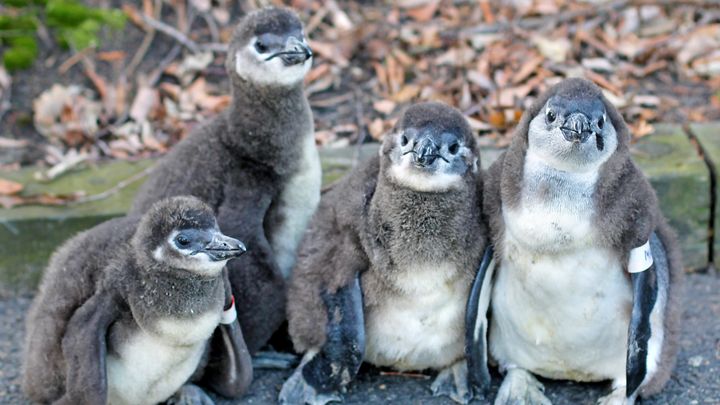
Help me save endangered African penguin chicks
Donation protected
Thank you for taking the time to visit my fundraiser!
As most of you know, I am a dedicated conservationist & have worked with animals of all kinds throughout my life. I believe that every species is important & it's my calling to protect them.
I have been given an amazing opportunity to intern at the Southern African Foundation for the Conservation of Coastal Birds (SANCCOB) in South Africa for 6 months in late April!
This fundraiser will help me help the penguins!

What is SANCCOB?
SANCCOB is a registered non-profit organization whose primary objective is to reverse the decline of seabird populations through the rescue, rehabilitation and release of ill, injured, abandoned and oiled seabirds – especially endangered species like the African penguin.
The organization works closely with colony managers to identify birds in need of care in the wild and bring them to one of our two centers in South Africa: Cape Town (Western Cape) and Gqeberha.

What will I be doing?
The Chick Rearing Unit works early morning and late-night shifts to ensure the chicks are cared for round the clock. Hatchlings require feeding every three hours and behavior and temperature are monitored closely. This Unit is equipped with specialized egg incubators designed to incubate eggs at an ideal temperature and humidity, mimicking what penguin parents would do in natural circumstances. A procedure called ‘candling’ the eggs involves shining a bright light against the eggshell to determine the viability of the embryo and how far the embryo has developed. The process from egg hatching to release can usually take three to four months.
SANCCOB has successfully released almost 8,000 African penguin chicks back into the wild and to date, more than 1,000 African penguin eggs have been rescued and admitted to SANCCOB!

Why do endangered African penguins need our help?
African penguins are the only penguin species native to the African continent, they were once one of southern Africa’s most abundant seabirds, with more than 1 million breeding pairs colonizing offshore islands and a few coastal sites. Today populations are at less than 2.5 percent of that level and in continuing rapid decline.
The crisis that spurs SANCCOB’s massive and well-organized Chick Bolstering Project is the result of human activities that have disrupted an eons-old internal rhythm for nesting, chick-rearing, molting and returning to the sea.
South Africa’s penguins begin breeding in March or April, but increasingly the first nests fail. Scientists cite scarcity of food for the birds’ poor condition, both for producing eggs and caring for young. Decades of commercial overfishing have drastically reduced the penguins’ main diet of sardines and anchovies, leaving them less nutritious prey. In addition, some fish stocks have shifted to different waters, making the penguins swim farther for what food is available.
Like many other bird species, the penguins can renest the same season. But by the time the chicks hatch, beginning in October, the parents are going into molt. While they are shedding all their old waterproof feathers and growing new ones, they can’t hunt in the ocean for food for the chicks. And as the season changes, the time comes for the adults to move on, whether the chicks have fledged or not. Without SANCCOB’s intervention, this second nesting, and the year’s breeding season, would fail.

"Pursue something so important that even if you fail, the world is better off with you having tried.” — Tim O'Reilly
Organizer
Heather DiLuzio
Organizer
North Andover, MA